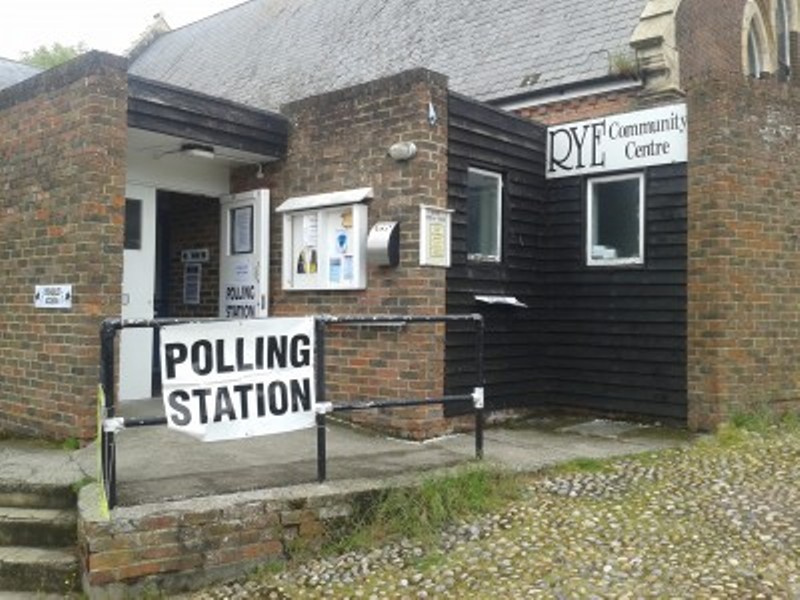An bye-election has been triggered by the requisite number of demands for a vote to elect a successor to the late John Izod on to Rye Town Council.
However demanding an election is one thing, but it would appear that finding a candidate is quite another as no-one has yet put themselves forward. Elections cost money and the notice announcing this one will be posted on June 23, with the election, itself, to be held on July 28, barely a month after the referendum – when much of the Town might feel that a rest from non-stop campaigning would be a good thing.
In order for an election to be held there must – at least in this country – be at least two candidates. The alternative, if there is just one, or no candidate, or no demand for an election is for the council to co-opt (or even leave the position vacant). This is a not-infrequent solution and last happened here only last year when long-serving councillor Sam Souster resigned from the town council after his surprise defeat for Rother District Council (which in view of the silence and invisibility of his successor, some may now be regretting). There were then several possible candidates, but no demand for an election so one was co-opted.
Who are these people, one wonders, who are so desperate for an election, why do they want it and where is their candidate? Doubtless time will tell, but in the meantime, your Town Council must prepare for an unnecessary expense. In the 19th century there were rotten boroughs, (an indeed, there are some who would contend that at least one still exists) these were boroughs with no voters but nevertheless returned a member of Parliament. Here, being Rye, we like to do things differently and have plenty of electors, but no potential member for the Council.
Photo: Rye News library
Image Credits: John Minter .




One lives in hope that a candidate might stand on the twin themes of 1. tackling parking in Rye and 2. worrying about inward investment of shops and businesses, particularly to provide jobs for young people in Rye. The latter is never mentioned by RTC, it should be a monthly fixed agenda item addressed to each and every councillor – ‘what have you done this month to encourage new businesses to come to Rye’.
Rye Town Council is in fact very engaged with Economic Regeneration within the business sector of Rye – has an active working group for this very project and has long been working in partnership with The Chamber of Commerce and other agencies concerned with employment and employability! Several public events targeting business owners have taken place since this latest initiative was put in place in 2015 and Rye Councillors have made personal visits to business owners throughout the town since then. The subject of economic regeneration is reviewed and discussed regularly at Town Council meetings and is regarded with all due importance.
Parking and traffic congestion as anybody in Rye should know, is a priority for the council and again a great deal of time and commitment is continually put into addressing this pressing issue. However, anybody who follows council reports will be aware that there are no easy answers.
An Election is a Democratic way of selecting a person willing to work for the local community. DEMOCRACY IS NOT EXPENSIVE IT IS PRICELESS.
A stout defence of the Council’s economic activities by Bernardine Fiddimore. Two things in reply. First, the point is not to make ‘personal visits’ to business owners in the town, or work with the chamber of commerce. These are all about businesses already here. What are the Council doing about going out into the world beyond Rye (yes, some councillors will find that amazing) and encouraging national companies and others to come to Rye. Second, I do follow council reports, and if Ms Fiddimore might turn to the minutes of the full council of 9th May, concerning the economic working group to which she refers, she will read “The general view was that the WG was not quite ready to become a formal committee – its role and remit needed to be ‘firmed up’.”
[NOTE: This comment has been edited in order to meet our guidelines for comments]